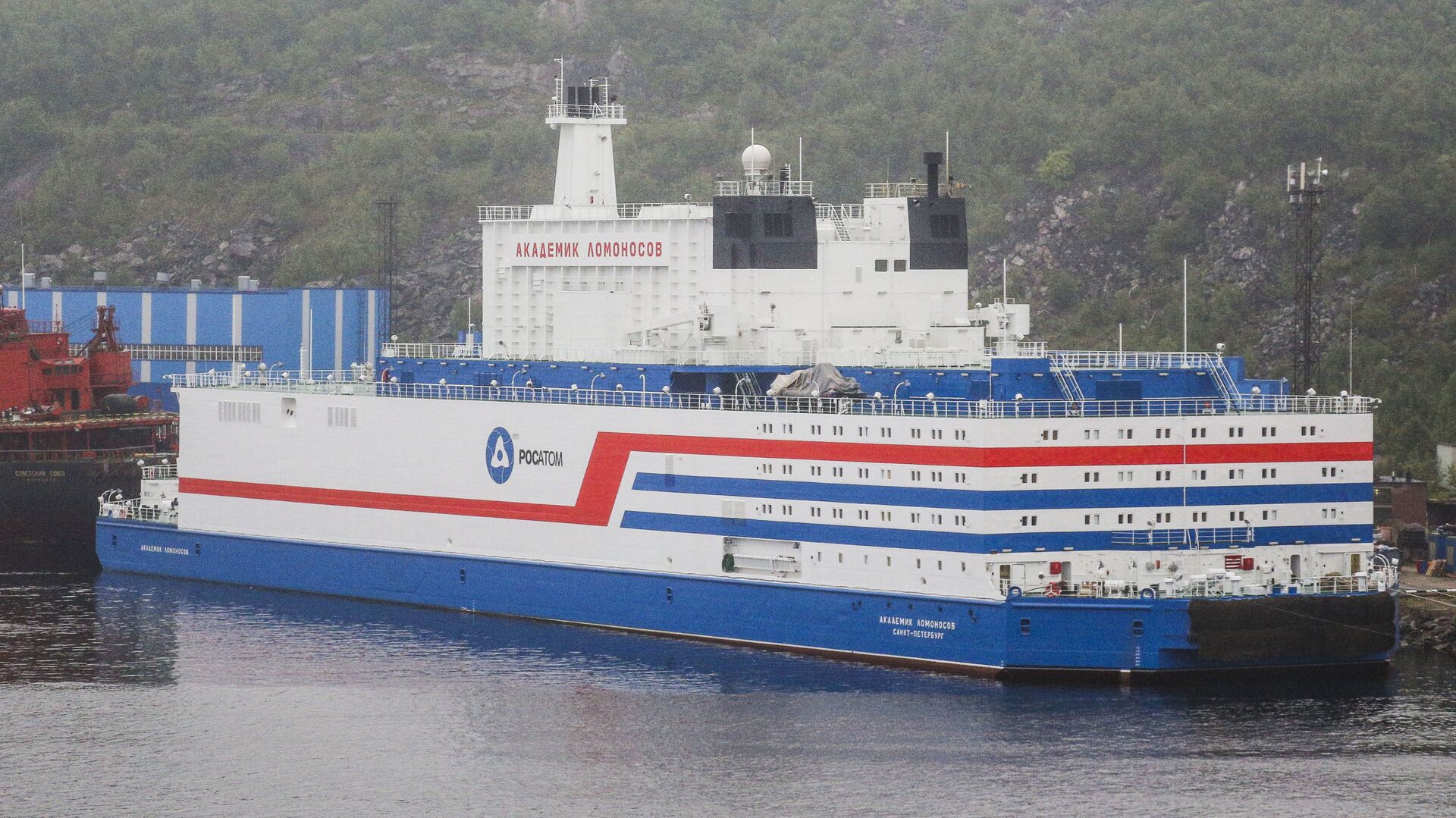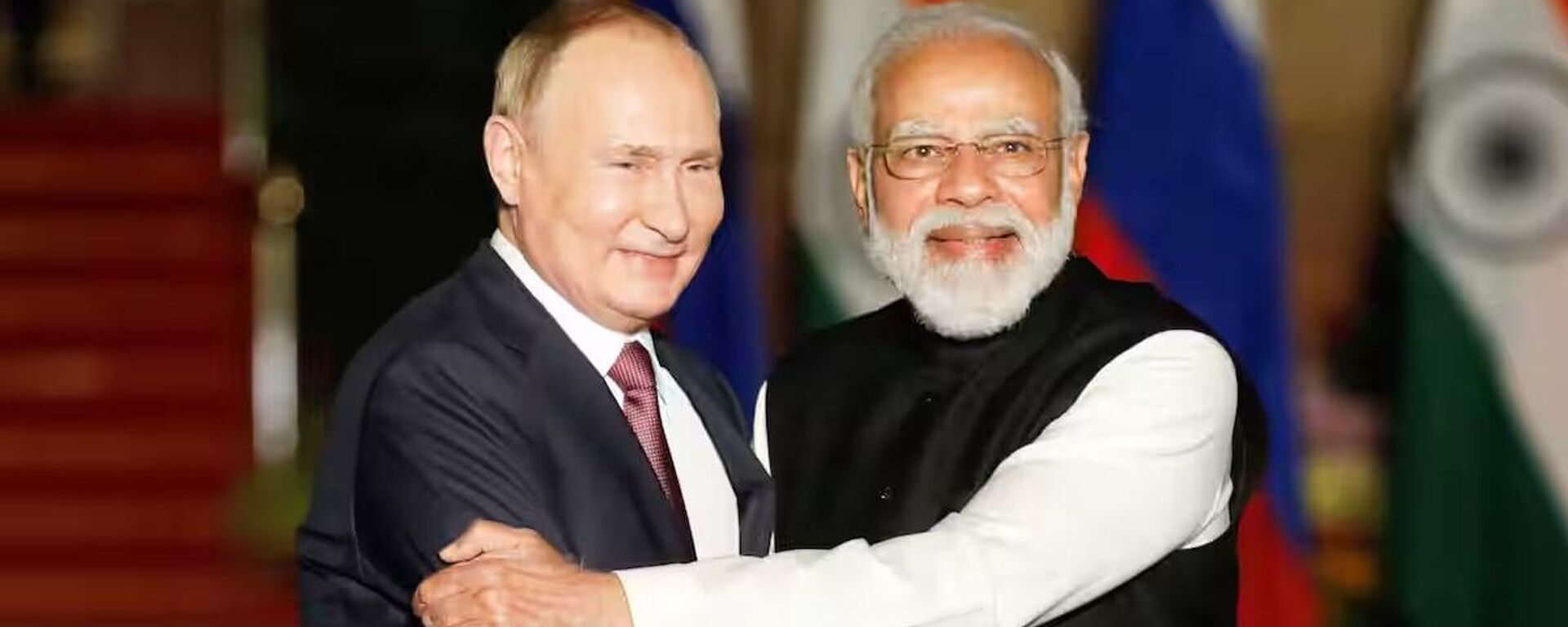https://sputniknews.in/20240906/what-does-india-gain-from-russias-far-east-development-8116785.html
What Does India Gain From Russia's Far East Development?
What Does India Gain From Russia's Far East Development?
Sputnik India
The Russian Far East is strategically important for both Moscow and New Delhi. India’s engagement in its development is essential to maintain a balanced relationship, experts told Sputnik India.
2024-09-06T17:53+0530
2024-09-06T17:53+0530
2024-09-06T17:53+0530
sputnik opinion
vladimir putin
narendra modi
russia
india
china
government of india
ministry of external affairs (mea)
ministry of defence (mod)
russian economy
https://cdn1.img.sputniknews.in/img/07e7/04/18/1672724_0:199:2931:1847_1920x0_80_0_0_842dd91c9a76f97afd2215fb69bb0921.jpg
The Russian Far East is strategically important for both Moscow and New Delhi. India’s engagement in its development is essential to maintain a balanced relationship, experts told Sputnik India.Putin stressed the importance of the region for reinforcing Russia's global economic position and mentioned the potential for nuclear power projects in the far east at the forum.Indian Prime Minister Narendra Modi's recent visit to Russia underlined the growing collaboration between New Delhi and Moscow in the region, with Indian firms like gemstone polisher KGK and Tata Power making major investments.Unnikrishnan noted that for Russia, the vast and sparsely populated region with its long borders needs major development and more migration to make it more attractive for settlement and growth.India could join a range of projects, including mining, oil and gas and agriculture, which would not only enhance its own food security but also find work for surplus Indian labour, he said.The pundit pointed that India provided a line of credit for projects in the Russian far east in 2019. Recent talks between Indian and Russian leaders have stressed the need for continued cooperation in the region.Leveraging Indian Expertise in Russia’s Far EastIndia could help speed up Russia's construction of nuclear power plants with its huge pool of skilled labour, either in India or Russia, he said.Professor Srikanth Kondapalli, dean of the School of International Studies at Jawaharlal Nehru University, told Sputnik India that the Indian Oil and Natural Gas Corporation (ONGC) was increasingly doing business with Russia.“India is focused on ONGC’s Sakhalin drilling role and its stake reduction in the South China Sea from 100 percent to 26 percent in exchange for concessions in Sakhalin, while continuing to import about $60 billion in energy from Russia,” Kondapilli said.He added that Indian pharmaceutical firms have opportunities to expand in Russia’s Far East thanks to the lower price of Indian generic drugs than European ones and the impact of sanctions on Russia.Kondapalli said a recent Memorandum of Understanding between Invest India and the Russian Direct Investment Fund aims to increase Indian investment opportunities in Russia with the private sector, particularly pharmaceuticals and consumer durables, leading the way.Although Russia has invested $90 billion in Indian nuclear projects, Indian investments in Russia are concentrated on infrastructure, pharmaceuticals and other sectors. But factors like the different railway gauges used by the two countries complicate logistics and need time to resolve, he noted.Kondapalli pointed out that integrating the Eurasian Economic Union with Russia's Far East Economic Region is still a work in progress, which may affect investment work on standardising regulations.Active Efforts Needed for Indian Businesses in Russian MarketRussia aims to strengthen ties with long-standing strategic partners like India. That is clear from the Russian Maritime Doctrine 2022, wehich retains the term ‘Asia-Pacific’, retired captain Sarabjeet S Parmar, a distinguished fellow, at the United Service Institution of India (USI) pointed out to Sputnik India.He said a priority for development of the far east was creating a shipbuilding industry able to make a range of vessels, from high-tonnage ships like aircraft carriers to Arctic icebreakers.Governments and the private sector must work together to create mechanisms for joint business work, Chenoy stressed.Russia could host fairs to attract Indian businesses, Chenoy suggested, and urged both nations to ensure that bureaucracies and businesses turn statements by their leaders into real actions.
https://sputniknews.in/20240705/modi-putin-summit-russia-india-strengthen-each-others-strategic-autonomy-7778946.html
russia
india
china
russia's far east
Sputnik India
feedback.hindi@sputniknews.com
+74956456601
MIA „Rossiya Segodnya“
2024
Swapna Nair
https://cdn1.img.sputniknews.in/img/07e7/09/12/4320104_0:0:681:681_100x100_80_0_0_ca8a7d4d582609272840ffdd1cde7278.jpg
Swapna Nair
https://cdn1.img.sputniknews.in/img/07e7/09/12/4320104_0:0:681:681_100x100_80_0_0_ca8a7d4d582609272840ffdd1cde7278.jpg
News
en_IN
Sputnik India
feedback.hindi@sputniknews.com
+74956456601
MIA „Rossiya Segodnya“
Sputnik India
feedback.hindi@sputniknews.com
+74956456601
MIA „Rossiya Segodnya“
Swapna Nair
https://cdn1.img.sputniknews.in/img/07e7/09/12/4320104_0:0:681:681_100x100_80_0_0_ca8a7d4d582609272840ffdd1cde7278.jpg
far east, entrepreneurial initiatives and strategic development, russian president vladimir putin, eastern economic forum, president putin, russia's global economic position, nuclear power projects, far east, indian prime minister narendra modi's, russia, new delhi, moscow, indian companies like kgk and tata power, russian far east, russia, india, russia, china, dr nandan unnikrishnan, distinguished fellow, international borders, substantial development, greater migration, settlement and growth, russian far east, mining, oil and gas, and agriculture, food security, agricultural production and processing, indian labour, agricultural and industrial development, line of credit, russian far east, indian and russian leaders, nuclear power plants, russia's reactor production, indian skilled labour, india or russia, indian and russian governments, secure and transparent investment environment, far east, ongc’s sakhalin drilling, south china sea, russia, professor srikanth kondapalli , dean of school of international studies at jawaharlal nehru university, indian pharma companies, russia’s far east, indian generic drugs, european ones, russia, memorandum of understanding between invest india, russian direct investment fund, indian investment, russia's far east, pharmaceuticals and consumer durables, russia, indian nuclear projects, indian investments
far east, entrepreneurial initiatives and strategic development, russian president vladimir putin, eastern economic forum, president putin, russia's global economic position, nuclear power projects, far east, indian prime minister narendra modi's, russia, new delhi, moscow, indian companies like kgk and tata power, russian far east, russia, india, russia, china, dr nandan unnikrishnan, distinguished fellow, international borders, substantial development, greater migration, settlement and growth, russian far east, mining, oil and gas, and agriculture, food security, agricultural production and processing, indian labour, agricultural and industrial development, line of credit, russian far east, indian and russian leaders, nuclear power plants, russia's reactor production, indian skilled labour, india or russia, indian and russian governments, secure and transparent investment environment, far east, ongc’s sakhalin drilling, south china sea, russia, professor srikanth kondapalli , dean of school of international studies at jawaharlal nehru university, indian pharma companies, russia’s far east, indian generic drugs, european ones, russia, memorandum of understanding between invest india, russian direct investment fund, indian investment, russia's far east, pharmaceuticals and consumer durables, russia, indian nuclear projects, indian investments
The Russian Far East is strategically important for both Moscow and New Delhi. India’s engagement in its development is essential to maintain a balanced relationship, experts told Sputnik India.
Putin stressed the importance of the region for reinforcing Russia's global economic position and mentioned the potential for nuclear power projects in the far east at the forum.
Indian Prime Minister Narendra Modi's recent visit to Russia underlined the growing collaboration between New Delhi and Moscow in the region, with Indian firms like gemstone polisher KGK and Tata Power making major investments.
“The Russian Far East is crucial for both Russia and India, with India’s involvement in its development being vital to prevent Russia from growing more reliant on China and to preserve a balanced relationship with Russia,” Dr Nandan Unnikrishnan, a distinguished fellow at the Observer Research Foundation (ORF), told Sputnik India.
Unnikrishnan noted that for Russia, the vast and sparsely populated region with its long borders needs major development and more migration to make it more attractive for settlement and growth.
India could join a range of projects, including mining, oil and gas and agriculture, which would not only enhance its own food security but also find work for surplus Indian labour, he said.
The pundit pointed that India provided a line of credit for projects in the Russian far east in 2019. Recent talks between Indian and Russian leaders have stressed the need for continued cooperation in the region.
Leveraging Indian Expertise in Russia’s Far East
India could help speed up Russia's construction of nuclear power plants with its huge pool of skilled labour, either in India or Russia, he said.
Unnikrishnan stressed that effective cooperation between the Indian and Russian governments was “crucial to creating a secure and transparent investment environment and encouraging business participation in the Far East.”
Professor Srikanth Kondapalli, dean of the School of International Studies at Jawaharlal Nehru University, told Sputnik India that the Indian Oil and Natural Gas Corporation (ONGC) was increasingly doing business with Russia.
“India is focused on
ONGC’s Sakhalin drilling role and its stake reduction in the South China Sea from 100 percent to 26 percent in exchange for concessions in Sakhalin, while continuing to import about $60 billion in energy from Russia,” Kondapilli said.
He added that Indian pharmaceutical firms have opportunities to expand in Russia’s Far East thanks to the lower price of Indian generic drugs than European ones and the impact of sanctions on Russia.
Kondapalli said a recent Memorandum of Understanding between
Invest India and the Russian Direct Investment Fund aims to increase Indian investment opportunities in Russia with the private sector, particularly pharmaceuticals and consumer durables, leading the way.
Although Russia has invested $90 billion in Indian nuclear projects, Indian investments in Russia are concentrated on infrastructure, pharmaceuticals and other sectors. But factors like the different railway gauges used by the two countries complicate logistics and need time to resolve, he noted.
Kondapalli pointed out that integrating the Eurasian Economic Union with Russia's Far East Economic Region is still a work in progress, which may affect investment work on standardising regulations.
Active Efforts Needed for Indian Businesses in Russian Market
Russia aims to strengthen ties with long-standing strategic partners like India. That is clear from the Russian Maritime Doctrine 2022, wehich retains the term ‘Asia-Pacific’, retired captain Sarabjeet S Parmar, a distinguished fellow, at the United Service Institution of India (USI) pointed out to Sputnik India.
That doctrine, Parmar said, focuses on “overcoming the economic and infrastructural isolation of the Far East from the industrialized regions of the Russian Federation, establishing sustainable sea and river, air and rail links with cities and towns in Siberia and the European part of the Russian Federation, including the development of the Northern Sea Route.”
He said a priority for
development of the far east was creating a shipbuilding industry able to make a range of vessels, from high-tonnage ships like aircraft carriers to Arctic icebreakers.
“Russia's emphasis on developing its far east in the coming decades highlights its strategic importance and global interest, offering India a key opportunity to strengthen its long-standing partnership with Russia through investments in hydrocarbons and other sectors,” Anuradha M Chenoy, Professor at Jawaharlal Nehru University, told Sputnik India.
Governments and the private sector must work together to create mechanisms for joint business work, Chenoy stressed.
While Indian businesses are well-established globally, the expert said “their engagement in Russia remains limited compared to other markets, necessitating more active efforts to bridge this gap.”
Russia could host fairs to attract Indian businesses, Chenoy suggested, and urged both nations to ensure that bureaucracies and businesses turn statements by their leaders into real actions.



